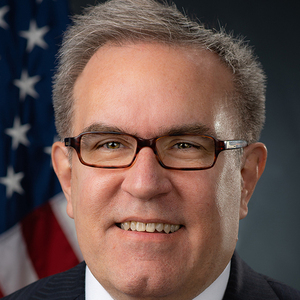Wheeler addresses SREs, RVO reallocation during recent hearings

April 4, 2019
BY Erin Voegele
U.S. EPA Administrator Andrew Wheeler told federal lawmakers in early April that it would be difficult for the agency to reallocate biofuel volumes waived by small refinery exemptions (SREs), even if Congress provided a legislative mechanism to do so. He also said the agency aims to address compliance year 2018 SREs in a timely manner, but cautioned EPA staff working on issues related to the Renewable Fuel Standard have several competing priorities.
Wheeler made these statements and addressed various issues related to the RFS during two recent appearances before federal lawmakers.
On April 3, Wheeler appeared before the Senate Committee on Appropriations’ Subcommittee on Interior, Environment, and Related Agencies, where he delivered testimony on the EPA’s fiscal year 2020 funding request.
During that hearing, Sen. Roy Blunt, R-Missouri, questioned Wheeler on the EPA’s actions regarding SREs and the potential reallocation of waived renewable volume obligations (RVOs).
Advertisement
Advertisement
Wheeler explained that the small refinery exemption program is the agency’s process for providing waivers of RFS requirements to small refineries. The program, he said, which decreases the gallons for the RFS program, is set up by statute.
“Previous administrations did not implement the program,” he said. “The EPA was sued three times and lost three times. So, now we have three court orders on how to run the program, in addition to the statute, as well as appropriations language.”
Wheeler explained that SRE requests are submitted after annual renewable volume obligations (RVOs) are set by EPA. “We don’t have a process to go back and readjust the RVO,” he said. “If we were to try to do that, it would probably send more small refiners into financial hardship based upon the number of gallons that would be spread out over fewer refineries.” He also stressed the EPA does “not have a mechanism” that would allow it to reallocate waived volumes.
In response, Blunt asked Wheeler if the EPA needs to develop such a mechanism, if Congress needs to give the agency one, or if it would be unreasonable to have a mechanism to reallocate volumes.
Advertisement
Advertisement
“I think we would need to be given that mechanism, but I also think it would be very hard to try to implement something like that after the fact,” Wheeler said.
Wheeler also briefly discussed the 39 SRE applications that are currently pending for compliance year 2018. He said the agency hasn’t actually received those applications yet. “The way the process works is that they apply to the Department of Energy,” he said. “Department of Energy reviews the small refinery exemption applications. They have given us a list of the small refineries that have applied this year, but they haven’t given us their underlying rationale and recommendations yet for those refineries. As soon as we receive those, we then process them.”
Wheeler also addressed questions regarding SREs during a hearing held by the House Committee on Appropriations’ Subcommittee on Interior, Environment, and Related Agencies April 2. That hearing was also held to address the EPA’s budget request for fiscal year 2020.
During the April 2 hearing, Chris Steward, R-Utah, asked Wheeler about EPA’s timeline for processing compliance year 2018 SRE applications. Wheeler explained the SRE application process and said the agency is expecting the DOE to deliver the SRE applications “any day now” and said the EPA will process them “on a timely basis.”
While Wheeler said the EPA will try to comply with a statutory 90-day deadline with regard to the SRE applications, he stressed that the same staff members who process SRE applications are also the staff members that are working several other RFS-related issues. This includes the agency’s pending E15/RIN market reform rulemaking, the 2020 RVO rulemaking, the reset rule, and others. He said the staff has five or six different priorities that could make it hard to process all the SREs within 90 days, but noted the agency will process SRE applications on a rolling basis.
Related Stories
A group of 16 senators, led by Sens. Chuck Grassley, R-Iowa, and Amy Klobuchar, D-Minn., on April 8 sent a letter to U.S. EPA Administrator Lee Zeldin urging the agency to increase RVO and account for SREs in the agency’s upcoming RFS rulemaking.
A group of small refineries on April 4 sent a letter to President Donald Trump urging him “to sent the multi-national oil and biofuels companies back to the drawing board to come up with a biofuels policy that does no harm.”
The U.S. Department of Commerce has disbanded an advisory committee that provided the agency with private sector advice aimed at boosting the competitiveness of U.S. renewable energy and energy efficiency exports, including ethanol and wood pellets.
Iowa’s Renewable Fuels Infrastructure Program on March 25 awarded nearly $3 million in grants to support the addition of E15 at 111 retail sites. The program also awarded grants to support two biodiesel infrastructure projects.
Effective April 1, Illinois’ biodiesel blend requirements have increased from B14 to B17. The increase was implemented via a bipartisan bill passed in 2022, according to the Iowa Soybean Association.
Upcoming Events










